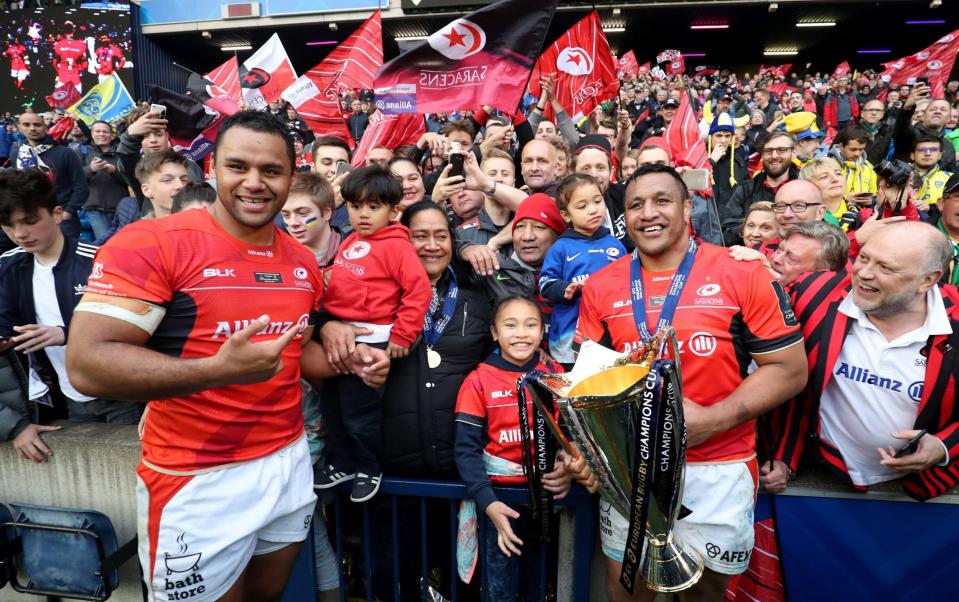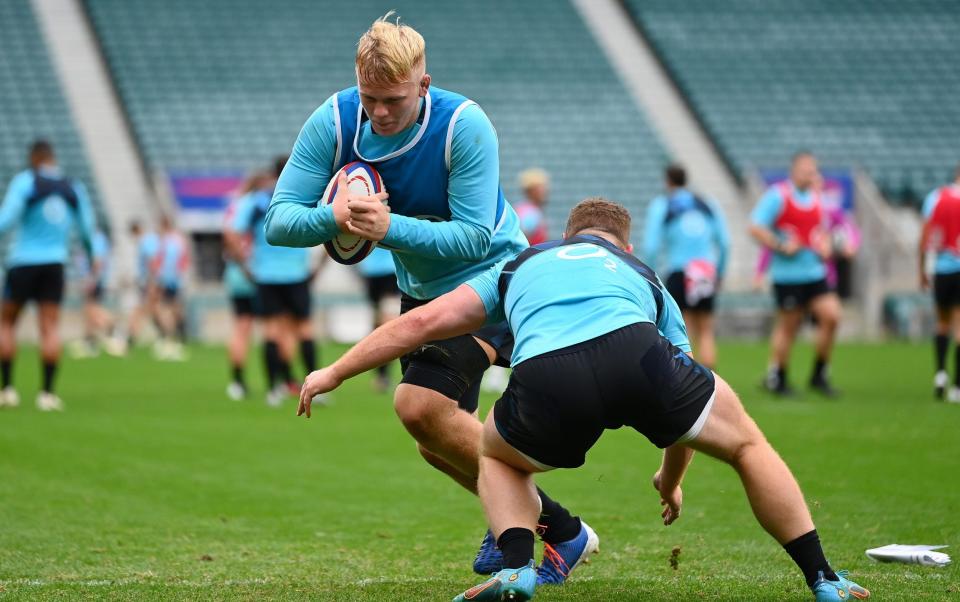Owen Farrell is Saracens' Tom Brady – succeeding without him will be their biggest challenge

All dynasties die in the end. In the United States, the New England Patriots’ reign felt like it would continue indefinitely as the combination of coach Bill Belichick and quarter-back Tom Brady won six Super Bowls between 2001 and 2018.
Plenty of high-minded tomes were written about the ‘Patriot Way’ of doing things. Others called them the ‘Evil Empire’. But then a disenfranchised Brady left in 2020 and things fell apart to the extent that Belichick, the most successful coach in the history of the sport, was pushed aside by the Patriots last week.
Mark McCall probably will not appreciate the end point of these parallels but there are plenty of other similarities between Saracens and the Patriots. The London club have won six Premiership titles, all with Owen Farrell at the helm, and even started promoting the ‘Saracens Way’ (now deceased). Now McCall, the director of rugby, finds his own main playmaker disenfranchised, results turning and as he openly admits “a new dawn is coming”.
McCall stopped short of confirming Farrell’s exit, likely to Racing 92, despite stating that he knew the fly-half’s decision. “The right thing to do is to talk about it when it is done.” Nor would he discuss the future of the Vunipola brothers, who are both out of the England picture, but it was clear what the implication was when he discussed the evolution of his team.

“Every player has a cycle, every team has a cycle,” McCall said. “This is the cycle of a great team, it has been truly magnificent but players are coming towards the end of their careers and they’re just part of that cycle. Everybody realises the adventure we’ve been on is coming to an end, and there’s a new adventure about to start with a group of younger players we’re incredibly excited about who have signed up for the longer term.
“The way we see it with a player is you are either in a development phase, a performance phase or a management phase. When you go into the management phase when your body starts to creak a little bit but you are still competitive. The trick with the team is not to have too many players in that management phase. If you have too many players in that management phase then it affects how you train and what you can do. That is just the cycle of a team.”
The exception to the rule is the new England captain, Jamie George, who has just signed a new contract at the club. Aping much the same the language that England head coach Steve Borthwick used the day before at Twickenham, McCall praised the 33-year-old’s “emotional intelligence”, adding: “Jamie is a glue player, and he’ll continue to be a glue player for us. When you’re going through tough periods and moments like we are right now, he’s the kind of person you want in your corner.” George will miss Saturday’s Champions Cup match at home to Lyon following an injection to his neck, but McCall says that he will be fully fit for the start of England’s warm weather training camp in Girona next week.
McCall also confirmed that he hopes “there’ll be news” shortly on Maro Itoje’s new contract with Theo Dan, Marco Riccioni, Eroni Mawi, Hugh Tizard, Andy Christie, Ben Earl and Theo McFarland all committing their future to the club. “There’s a lot of that young crew who are 25 and under who we’re super excited about,” McCall said.

Managing the end of a successful dynasty is one of the most challenging tasks in professional sport. Even greats such as Belichick find that transition can quickly become a cliff edge. McCall has the advantage that he has gone through the process once before when Borthwick, Ernst Joubert and several other senior players bowed out in 2014, passing the leadership mantle to Farrell, George and Itoje.
A new leadership group has been formed and ready to inherit that same mantle. “I suppose all good things come to an end and there is a re-energising effect and impact of a new group,” McCall said. “We have met with the players who we believe will grab hold of it over the next three or four years. We have met with them regularly over the past couple of months to talk about how they want the club to be and how they go about it. I know they are excited as a new leadership group. There is a new dawn coming and it is exciting for everybody.”
These are McCall’s medium-to-long-term priorities. The short term is all about pulling Saracens out of a tailspin of five defeats in seven games that culminated in last weekend’s record 55-15 loss to Bordeaux. Sixth in the Premiership, they need a victory against Lyon on Saturday night and some help from Connacht against Bristol to stay alive in Europe.
“I think we’ve had a constructive week this week, without sharing too much, and now I guess the proof will be in the pudding,” McCall said. “Not just this weekend to be honest, because the most important thing is the long-term and let’s see what happens over the next few months.”

 Yahoo Sport
Yahoo Sport 



































































